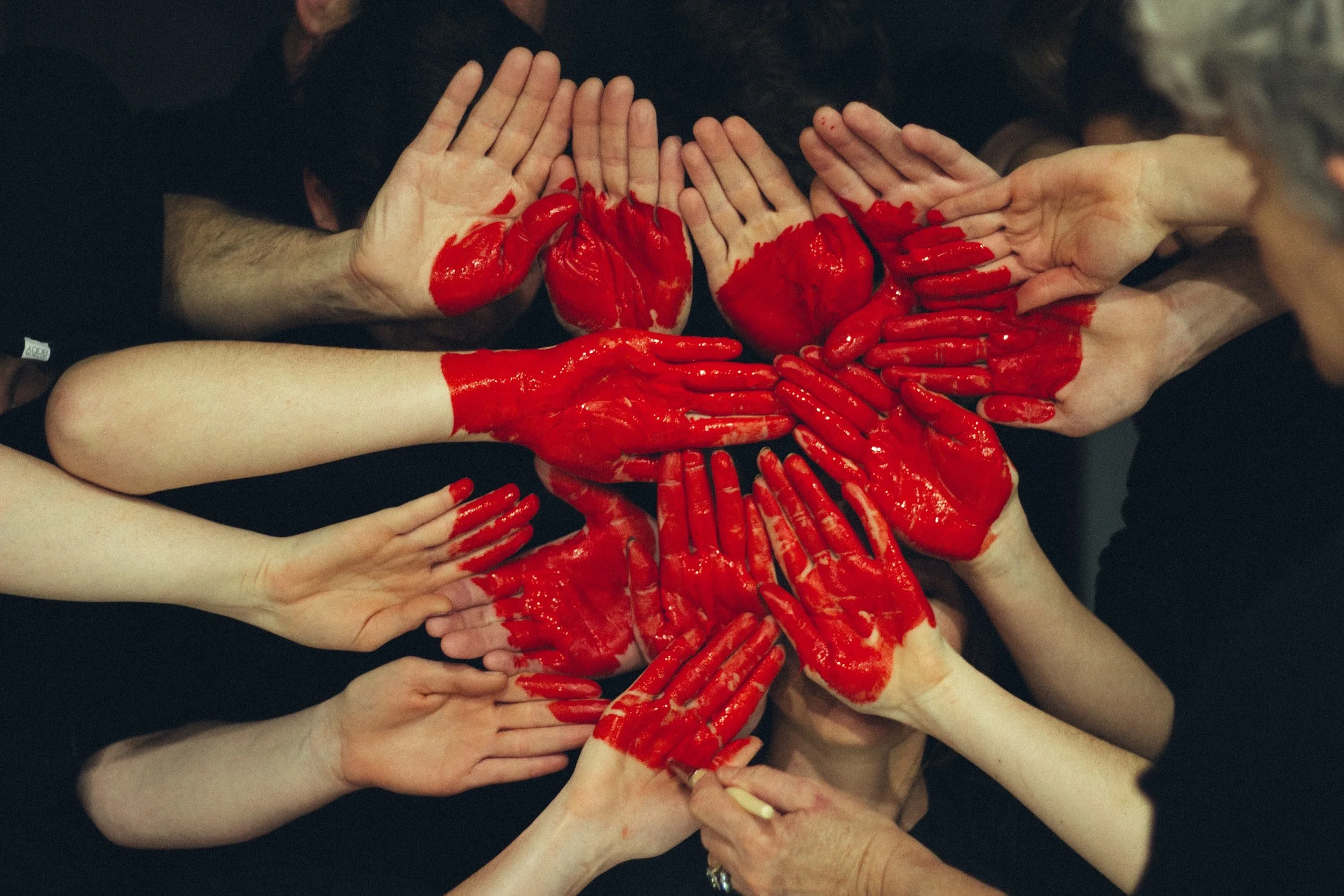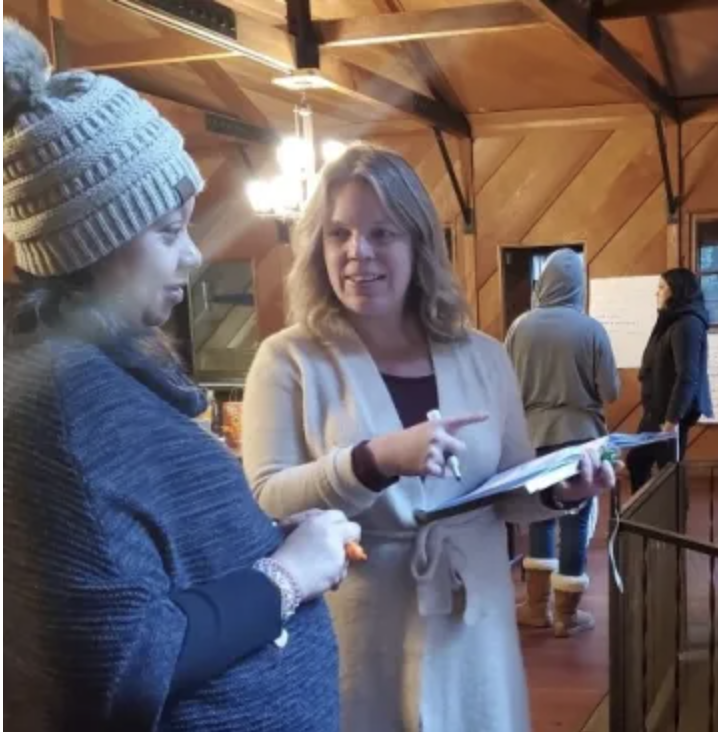With This Company’s Support, Women Are Escaping Their Abusers
With This Company’s Support, Women Are Escaping Their Abusers
By MaryLou Costa, Reasons to Be Cheerful, January 13, 2022
word count: 1036
After nearly 10 years of harassment, threats and beatings from her husband — including a blow to the head while she was holding their then one-year-old daughter — Adriana (not her real name) finally mustered up the courage to take action.
But when she did, it wasn’t friends or family she turned to for help. It was her employer, Brazil’s largest retailer, Magazine Luiza, better known locally as Magalu.
Adriana, now a company secretary with Magalu, was the first employee to contact the company’s Canal Mulher (Women’s Channel) hotline. The hotline was set up in 2017 after the murder of 37-year-old Denise Neves dos Anjos, a Magalu store manager who was stabbed to death by her husband.
Few companies have such a hotline, and at those that do, an employee might expect a referral to social services. But Magalu’s model goes far deeper. Upon learning about her case, the company immediately got to work helping Adriana find a new apartment in Sao Paulo so she could get away from her husband. Magalu also took care of Adriana’s rental payments — no reimbursement was expected — and acted as the guarantor for her rental contract. It provided additional mental health therapy and legal support.
“For the first time I felt I wasn’t by myself –– that I would get some help with the whole process of freeing myself from my abusive husband,” the 42-year-old employee told Reasons to Be Cheerful via a translator.
Adriana was the first of nearly 700 female employees that Magalu has helped to extract from abusive relationships over the past four years. During this time, the company has paid to relocate over 100 of these women and supported almost all of them legally, financially and emotionally. It’s an extraordinary level of involvement from a corporate entity in a matter most companies view as too complex and legally dicey to intervene in.
Coordinating these efforts is a dedicated team of specialists led by a senior company officer in Magalu’s compliance division. This rapid-response squad is staffed with psychologists, social workers and other professionals equipped to quickly intervene and support women and their children suffering from domestic violence. As in Adriana’s case, this often means getting involved directly, with relocation assistance, legal guidance, financial help and mental health services. Magalu currently has 100 cases open, 60 of which are considered high risk in that the women are still in close contact with their abusers.
Crushed by negative news?
Sign up for the Reasons to be Cheerful newsletter.
For Adriana, this intervention has meant the difference between life and death.
“Once he knew Magalu was intervening, he knew he was no match for a big company like that, and that played a big role in him stepping back,” she says. “All the support and information I got has stopped me from becoming a femicide statistic.”
Those statistics are indeed grim. In Brazil, a country of 213 million, a woman dies of domestic terror every two hours. The Covid-19 pandemic has seen a two percent rise in women’s suicide rates.
Yet there is no legislation in Brazil compelling employers to provide any form of domestic violence support. In other countries, governments and companies are just beginning to assume a level of responsibility in such situations.
The government of New Zealand mandated paid domestic violence leave in 2018. In neighboring Australia, paid government support is available, and activists are calling for employer mandates as well. In the U.S., at a minimum, most states require employers to provide a period of unpaid leave for employees experiencing domestic violence.
Internal estimates indicate that around two percent of all women working at Magalu suffer from some form of domestic violence, a rate the company feels reflects the wider problem in Brazilian society. Magalu’s chairwoman, Luiza Trajano, has made supporting affected employees a priority, and was named one of Time Magazine’s 100 Most Influential People of 2021 for her work in advancing women’s issues.
Trajano and Magalu’s success at creating a public platform for the issue of domestic violence is one of the reasons behind the company’s high intervention rate. Magalu uses its internal television station, TV Luiza, to regularly encourage affected employees and concerned colleagues to come forward. (The company has 50,000 workers, half of whom are women.). After a broadcast, there is usually an uptick in calls to the Women’s Channel as affected employees are reminded they have somewhere to turn, despite Brazil’s highly religious culture where suffering in silence is the norm.
Even with all the resources Magalu has poured into helping domestic violence victims, the company can only do so much, notes its corporate reputation and sustainability manager Ana Luiza Herzog.
“We can do everything and still not be successful,” says Herzog. “We help financially, even moving a victim from one state to another, and when we check in, we might find things are going just fine, or we might find they are moving back in with their abusive partner.”
“And then there’s nothing we can do,” she says. “It’s no easy issue. Let’s not pretend that.”
Adriana’s case illustrates this — and also shows how the persistence of a corporate ally can lead to a positive outcome. She was eventually able to divorce her husband in late 2017, but he continued to follow and harass her for six months afterwards. That was when Magalu’s domestic violence support team threatened to escalate the case to the high-profile Brazilian prosecutor, Gabriela Manssur, known for championing women’s rights. He retreated.
Today, Adriana’s only connection to him is through their two school-aged daughters, who he sees locally on weekends. Adriana doesn’t allow him to take them on long-distance trips and the children must keep their cell phones on at all times.
At Magalu, the death of Denise Neves dos Anjos continues to cast a shadow. An investigation revealed she had been badly beaten by her husband just six months prior to her murder.
“We could have prevented Denise’s death, but at the time, we knew nothing about this issue,” laments Herzog.
Yet there is some solace to be found in Adriana’s success story.
“I might not be here if I hadn’t gotten help from Magalu,” she says. “That could have been me. I’m very grateful.”






